Xung đột Libya có trở thành 'Syria thứ hai'?
(Baonghean) - The two sides in the conflict in Libya agreed to a ceasefire on January 12, ending nine months of prolonged confrontation. However, this order is still very fragile, because the head of the Eastern forces, General Khalifa Haftar, has not signed the ceasefire agreement on January 13 at the negotiations in Moscow, where Russia acted as a mediator.
“Fragile” ceasefire
Talks on the terms of a ceasefire between Haftar's forces and the UN-recognized government headed by Fayez al-Sarraj lasted seven hours, but the two delegations did not actually meet. Moscow, however, stressed that "certain progress" had been made. Sarraj's Government of National Accord (GNA) in Tripoli has been under constant attack by forces loyal to Haftar, who and his loyalists control the east of the country, since late April. The two sides are therefore expected to agree on the terms of a ceasefire that came into effect over the weekend, raising hopes of an end to the war that has tormented the oil-rich North African nation.
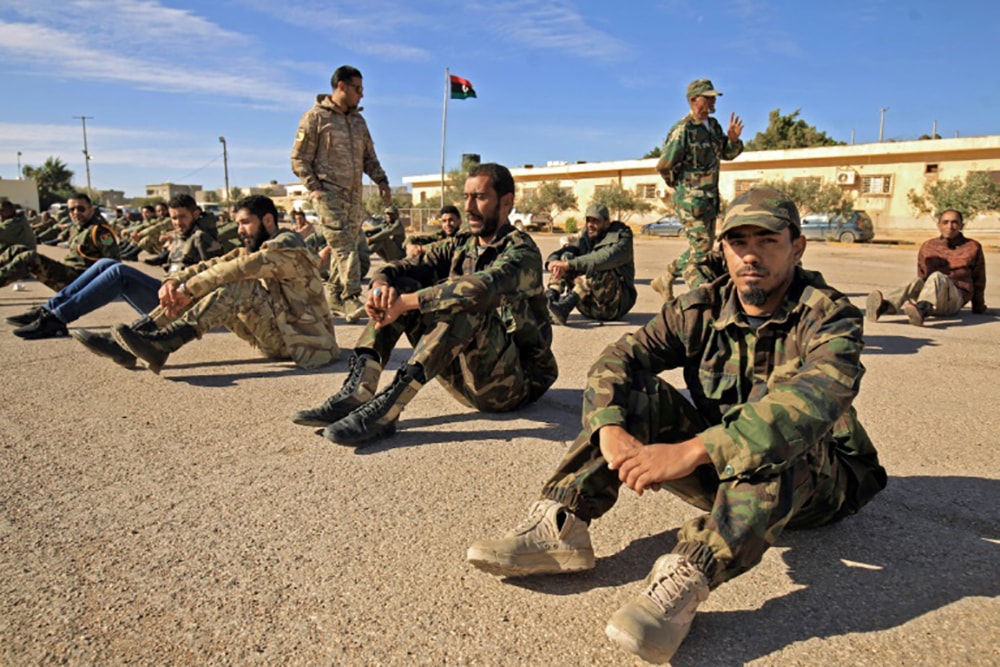 |
| Fighters loyal to Haftar in the eastern Libyan city of Benghazi in December 2019. Photo: AFP |
Russian Foreign Minister Sergey Lavrov said that Sarraj and the head of the Supreme State Council in Tripoli, Khaled al-Mechri, had signed the document, but Haftar and his ally Aguila Saleh “requested more time until the next morning” (January 14) to study it carefully. However, according to the latest information, Haftar left Moscow without signing the agreement. In recent times, the foreign and defense ministers of Russia and Türkiye have acted as intermediaries, but the parties directly involved in the conflict have never met face to face. Libyan TV channel al-Ahrar once quoted al-Mechri as saying: “We have refused any meeting with Haftar.”
It is known that the ceasefire initiative was jointly proposed by Russian President Vladimir Putin and his Turkish counterpart Recep Tayyip Erdogan. After a difficult process, by midnight last Sunday, a fragile ceasefire officially came into effect.
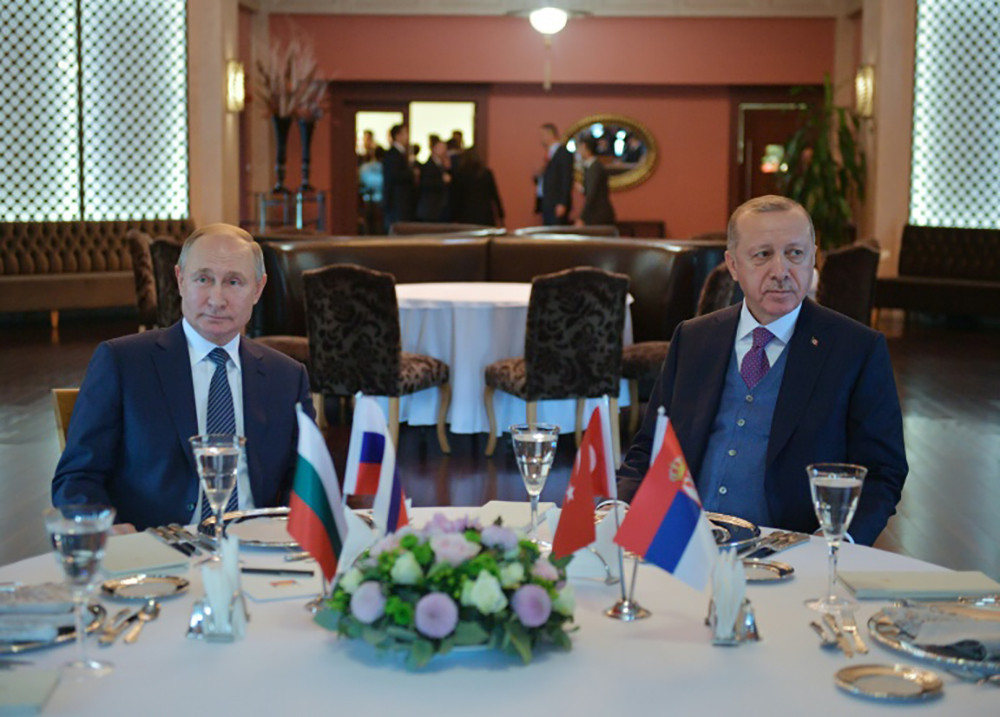 |
| Russian and Turkish leaders at a meeting last week in Istanbul. Photo: Sputnik |
However, a day later, the Ankara leader reiterated the “urgency” of a long-term agreement after meeting with Italian Prime Minister Giuseppe Conte. Many other world leaders have also expressed their interest in the developments in Tripoli. For example, German Chancellor Angela Merkel visited Mr. Putin on January 11 and received support from the leader in Moscow for efforts to organize a UN-sponsored peace conference, scheduled to take place at the end of January. French President Emmanuel Macron also spoke out on January 13, calling for a “credible, lasting and verifiable” ceasefire agreement.
Western powers are keen to stabilize Libya, which has Africa's largest crude oil reserves, apparently out of concern that Islamist militants and migrant smugglers, already active, could take advantage if the chaos escalates.
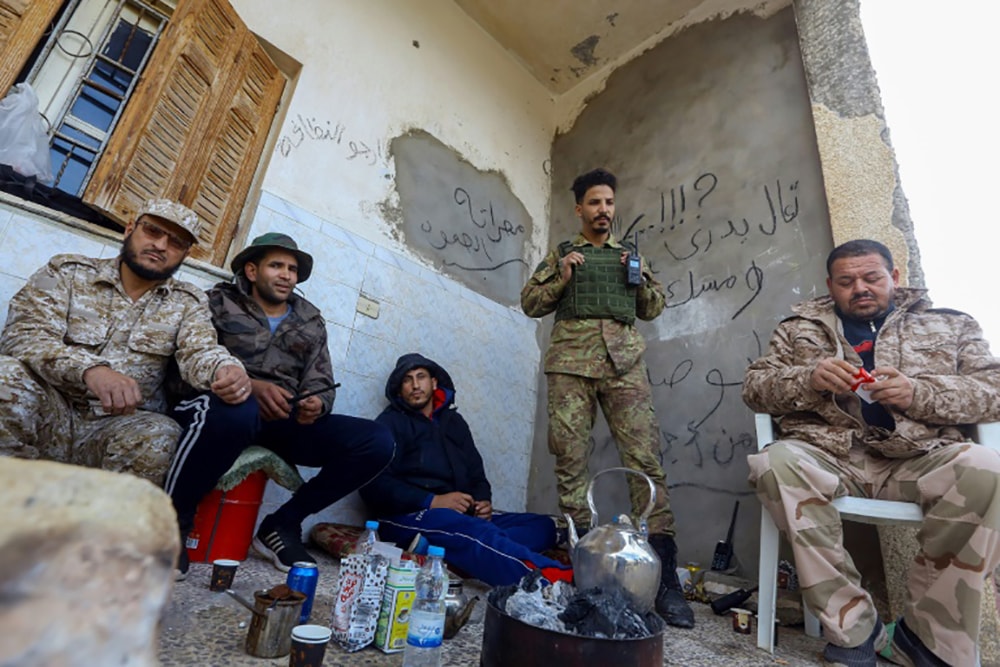 |
| GNA forces take advantage of the ceasefire to rest in the south of the capital Tripoli. Photo: AFP |
Will the past turn the page?
Earlier this week, Sarraj called on Libyans to “let bygones be bygones, put aside their differences and unite for stability and peace.” This is a positive sign, to a greater or lesser extent, given the already tense situation. Since Haftar launched his offensive on Tripoli, more than 280 civilians and 2,000 fighters have died, according to the UN, not to mention the 146,000 Libyans who have been displaced.
In such a complex context, Türkiye and Russia have jointly launched diplomatic initiatives, although the two countries are said to support opposite sides of the battle line. In January, Ankara sent troops under the guise of training to support the GNA, a move that was strongly criticized by European powers and US President Donald Trump. The GNA also signed agreements with Ankara that gave Türkiye authority over a large area in the eastern Mediterranean. This agreement, not surprisingly, was also condemned by France, Greece, Egypt and Cyprus.
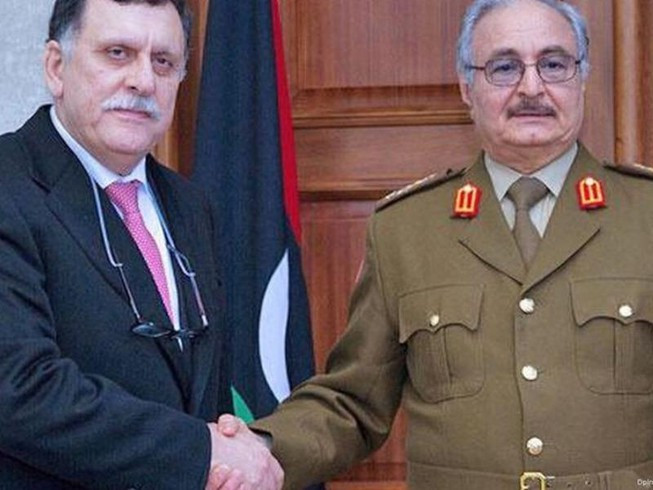 |
| Prime Minister Fayez al-Sarraj (left) and General Khalifa Haftar. Photo: AP |
Còn Nga lại bị cáo buộc hậu thuẫn cho các lực lượng thân Haftar, vốn đang nhận được sự ủng hộ của Các tiểu vương quốc Arập thống nhất, Saudi Arabia và Ai Cập - tất cả những nước này đều là đối thủ trong khu vực của Thổ Nhĩ Kỳ. Có nguồn tin tiết lộ rằng, vài trăm lính đánh thuê gốc Nga đã có mặt ở Libya, đứng vào hàng ngũ các lực lượng của Haftar. Tuy nhiên, bản thân Tổng thống Putin đã lên tiếng bác bỏ, khẳng định rằng bất kỳ công dân Nga nào có mặt tại đất nước Bắc Phi đang xảy ra giao tranh đều không phải do Moskva trả lương.
AFP dẫn phân tích của chuyên gia phân tích quốc phòng người Nga Alexei Malashenko, lập luận rằng sở dĩ Nga ủng hộ Haftar là bởi ông này có sức mạnh quân sự cao hơn, lại được đồng minh của họ là Ai Cập hậu thuẫn. Ông nhận định thêm, Moskva muốn thông qua đó bảo vệ sự hiện diện của mình tại Libya, bao hàm luôn cả các lợi ích liên quan đến dầu lửa. Từ đó, chuyên gia này phỏng đoán, Nga có thể nhen nhóm lại thương mại vũ khí và lúa mì, đồng thời tái khởi động một dự án xây dựng đường sắt hiện đang tạm ngừng.
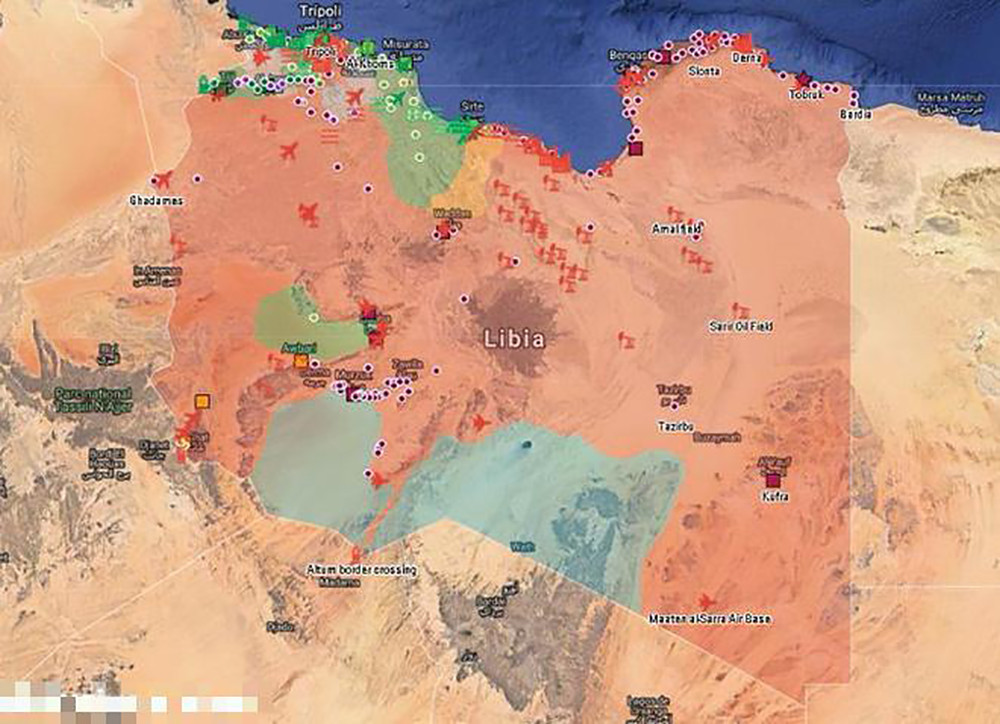 |
| Bản đồ toàn cảnh chiến sự ở Libya. Màu đỏ: Quân đội Quốc gia Libya (LNA); màu xanh lá cây: Chính phủ Đoàn kết Dân tộc. Ảnh: GNA |
Trên mặt trận ngoại giao, Châu Âu và Bắc Mỹ cũng đã phát động cuộc “tấn công” riêng, nhằm tìm cách ngăn Libya, trong bối cảnh các chủ thể quốc tế ngày càng gia tăng can dự vào cuộc xung đột nơi đây, không bị biến thành cái mà Berlin gọi là một “Syria thứ hai”. Mới đây nhất, Nhà vua Jordan Abdullah đã cảnh báo, hàng nghìn chiến binh đang rời Syria để tiến về Libya, và quả thực, dẫu đây là điều đang xảy ra ở khu vực Trung Đông - Bắc Phi, thì cũng sẽ khiến các quốc gia phương Tây đứng ngồi không yên, trăn trở tìm cách để giải quyết gọn ghẽ trong năm 2020.

